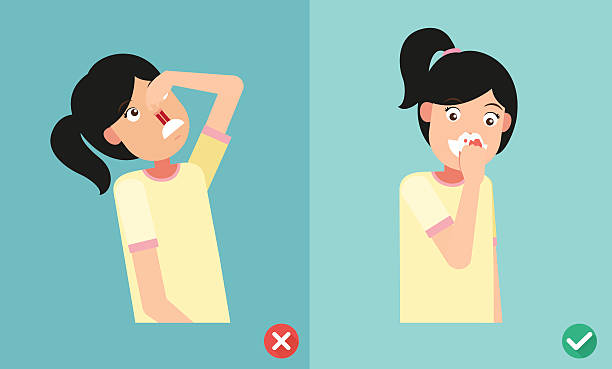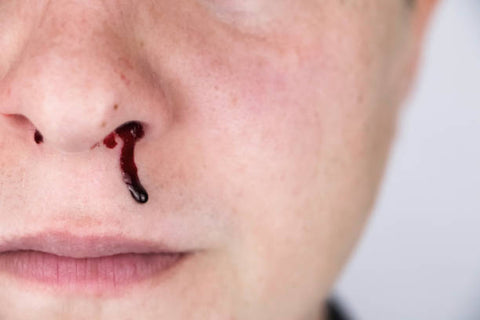Nosebleeds, also known as epistaxis, occur when the delicate blood vessels in the lining of the nose break and bleed. They can be caused by a variety of factors, including dry air, trauma, and high blood pressure.

In this blog, we will discuss the causes, symptoms, and home remedies for nosebleeds.
Causes of Nosebleeds

The exact cause of nosebleeds is not always clear, but they can be caused by the following:
-
Dry air: Dry air can cause the nasal lining to become dry and cracked, making it more susceptible to bleeding.
-
Trauma: Trauma to the nose, such as a blow to the face, can cause the blood vessels in the lining of the nose to break and bleed.
-
High blood pressure: High blood pressure can cause the blood vessels in the nose to become more fragile, increasing the risk of nosebleeds.
-
Medications: Certain medications, such as blood thinners and nonsteroidal anti-inflammatory drugs (NSAIDs), can increase the risk of nosebleeds.
Symptoms of Nosebleeds
The symptoms of nosebleeds can vary, but they often include:
-
Blood: The most obvious symptom of a nosebleed is the presence of blood.
-
Dizziness: In severe cases, a nosebleed can cause dizziness or lightheadedness.
-
Weakness: A nosebleed may cause weakness or fatigue.
-
Nausea: In rare cases, a nosebleed may cause nausea or vomiting.
Home Remedies for Nosebleeds

There are several home remedies that can help alleviate the symptoms of a nosebleed:
-
Pinch the nose: Pinching the soft part of the nose can help stop the bleeding.
-
Ice: Applying ice to the nose can help constrict the blood vessels and stop the bleeding.
-
Humidifier: Using a humidifier can help moisten the air and prevent the nasal lining from becoming dry and cracked.
-
Vitamin C: Eating foods rich in vitamin C, such as citrus fruits and leafy green vegetables, can help strengthen the blood vessels in the nose.
-
Saltwater rinse: Rinsing the nose with a mixture of warm water and salt can help soothe the nasal lining and prevent dryness.
-
Petroleum jelly: Applying petroleum jelly to the inside of the nose can help moisturize the nasal lining and prevent dryness.
When to See a Doctor
Most nosebleeds will stop on their own within a few minutes. However, if you have a nosebleed that lasts for more than 20 minutes, or if you are experiencing other symptoms such as severe dizziness or difficulty breathing, you should seek medical attention immediately.
In conclusion, nosebleeds can be caused by a variety of factors and can be uncomfortable and even alarming. Home remedies such as pinching the nose, using ice, using a humidifier, eating foods rich in vitamin C, using a saltwater rinse, and applying petroleum jelly can help alleviate the symptoms of a nosebleed. If a nosebleed lasts for more than 20 minutes or is accompanied by other symptoms, seek medical attention immediately.












